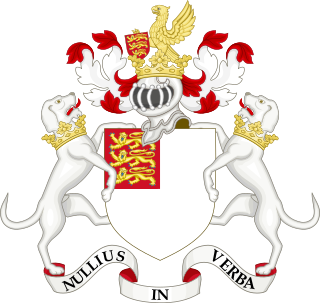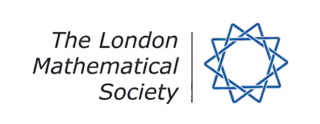
Bertrand Arthur William Russell, 3rd Earl Russell was a British philosopher, logician, and social critic. As an academic, he worked in philosophy, mathematics, and logic. His work has had a considerable influence on mathematics, logic, set theory, linguistics, artificial intelligence, cognitive science, computer science, and various areas of analytic philosophy, especially philosophy of mathematics, philosophy of language, epistemology, and metaphysics. He was a public intellectual, historian, social critic, political activist, and Nobel laureate. He was born in Monmouthshire into one of the most prominent aristocratic families in the United Kingdom.

The International Council for Science was an international non-governmental organization devoted to international cooperation in the advancement of science. Its members were national scientific bodies and international scientific unions.
Education in England is overseen by the United Kingdom's Department for Education. Local government authorities are responsible for implementing policy for public education and state-funded schools at a local level.
The Science Council is a UK organisation that was established by Royal Charter in 2003. The principal activity of The Science Council is the promotion of the advancement and dissemination of knowledge of and education in science pure and applied, for the public benefit. The Science Council is the Competent Authority with respect to the European Union directive 2005/36/EC. It is a membership organisation for learned and professional bodies across science and its applications and works with them to represent this sector to government and others. Together, the member organisations represent over 350,000 scientists. The Science Council provides a forum for discussion and exchange of views and works to foster collaboration between member organisations and the wider science, technology, engineering, mathematics and medical communities to enable inter-disciplinary contributions to science policy and the application of science.

The Royal Society of Canada, also known as the Academies of Arts, Humanities and Sciences of Canada, is the senior national, bilingual council of distinguished Canadian scholars, humanists, scientists and artists. The primary objective of the RSC is to promote learning and research in the arts, the humanities and the sciences. The RSC is Canada's National Academy and exists to promote Canadian research and scholarly accomplishment in both official languages, to recognize academic and artistic excellence, and to advise governments, non-governmental organizations and Canadians on matters of public interest.

The Royal Society, formally The Royal Society of London for Improving Natural Knowledge, is a learned society and the United Kingdom's national academy of sciences. The society fulfils a number of roles: promoting science and its benefits, recognising excellence in science, supporting outstanding science, providing scientific advice for policy, education and public engagement and fostering international and global co-operation. Founded on 28 November 1660, it was granted a royal charter by King Charles II as The Royal Society. As such, it has a claim to be the world's oldest continuously existing learned society.
A students' union, also known by many other names, is a student organization present in many colleges, universities, and high schools. In higher education, the students' union is often accorded its own building on the campus, dedicated to social, organizational activities, representation, and academic support of the membership.

Russell Square is a large garden square in Bloomsbury, in the London Borough of Camden, built predominantly by the firm of James Burton. It is near the University of London's main buildings and the British Museum. Almost exactly square, to the north is Woburn Place and to the south-east is Southampton Row. Russell Square tube station sits to the north-east.

The London Mathematical Society (LMS) is one of the United Kingdom's learned societies for mathematics (the others being the Royal Statistical Society, the Institute of Mathematics and its Applications, the Edinburgh Mathematical Society and the Operational Research Society.

The Institute of Mathematics and its Applications (IMA) is the UK's chartered professional body for mathematicians and one of the UK's learned societies for mathematics.

The Canadian Mathematical Society (CMS) is an association of professional mathematicians dedicated to the interests of mathematical research, outreach, and scholarship and education in Canada. It serves the national community through the publication of academic journals, community bulletins, and the administration of mathematical competitions.
The Institute of Biology (IoB) was a professional body for biologists, primarily those working in the United Kingdom. The Institute was founded in 1950 by the Biological Council: the then umbrella body for Britain's many learned biological societies. Its individual membership quickly grew; in the late 1990s it was as high as 16,000 but declined in the early 21st century to 11,000. It received a Royal Charter in 1979 and it held charitable status. The IoB was not a trade union, nor did it have the regulatory power over its membership although it did have the right to remove a member's Chartered status and was empowered by its Royal Charter to represent Britain's profession of biology. In October 2009, the IoB was merged with the Biosciences Federation (BSF) to form the Society of Biology, which has around 14,000 individual members and over 90 member organisations. In May 2015, the Society was granted permission to become the Royal Society of Biology.

Indian Statistical Institute (ISI) is a higher education and research institute which is recognized as an Institute of National Importance by the 1959 act of the Indian parliament. It grew out of the Statistical Laboratory set up by Prasanta Chandra Mahalanobis in Presidency College, Kolkata. Established in 1931, this unique institution of India is one of the oldest institutions focused on statistics, and its early reputation led it to being adopted as a model for the first US institute of Statistics set up at the Research Triangle, North Carolina by Gertrude Mary Cox.

The Norwegian Academy of Science and Letters is a learned society based in Oslo, Norway. Its purpose is to support the advancement of science and scholarship in Norway.

Halliford School is a selective boys independent day school, which also admits girls into its sixth form, in Lower Halliford, Shepperton, Surrey, England. The school is a member of the Headmasters' and Headmistresses' Conference (HMC). The current Headmaster is Mr James Davies. Former pupils of the school are known as "Old Hallifordians". The school's grounds are situated on the edge of Spelthorne, providing access from London, the major airports, the M3 and M4 motorways.
The Joint Mathematical Council (JMC) of the United Kingdom was formed in 1963 to 'provide co-ordination between the Constituent Societies and generally to promote the advancement of mathematics and the improvement of the teaching of mathematics'.
Ayodele Oluwatumininu Awojobi, also known by the nicknames "Dead Easy", "The Akoka Giant", and "Macbeth", was a Nigerian academic, author, inventor, social crusader and activist. He was considered a scholarly genius by his teachers and peers alike.
Centre for Mathematical Sciences (CMS), with campuses at Thiruvananthapuram and Pala in Kerala, India, is a research level institution devoted to mathematics and other related disciplines like statistics, theoretical physics, computer and information sciences. The Centre was incorporated in 1977 as a non-profit scientific research and training centre under the Travancore-Cochin Literary, Scientific and Charitable Societies Registration Act XII of 1955. The driving force behind the establishment of the Centre was Prof. Aleyamma George, who had been Professor and Head of the Department of Statistics of University of Kerala. Since 2006, the Centre is a Department of Science and Technology (India) (DST), Government of India, New Delhi Centre for Mathematical Sciences and is fully financed by DST, New Delhi.

Sir Tejinder Singh Virdee,, is a Kenyan-born British experimental particle physicist and Professor of Physics at Imperial College London. He is best known for originating the concept of the Compact Muon Solenoid (CMS) with a few other colleagues and has been referred to as one of the 'founding fathers' of the project. CMS is a world-wide collaboration which started in 1991 and now has over 3500 participants from 45 countries.











